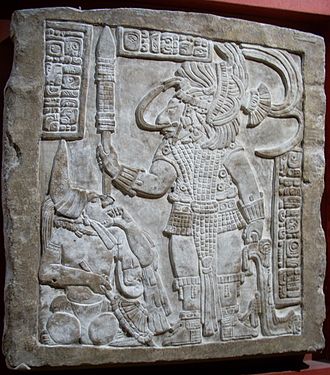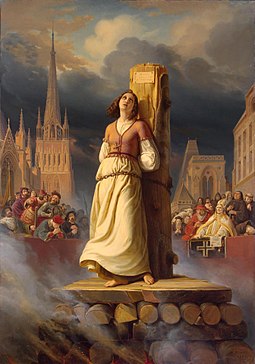 April 30 was a busy day in history, like most days. Washington first took the oath of office as U.S. President on this day in 1789, which is good. Jefferson made the Louisiana purchase exactly 14 years later, which is also good. Saigon fell to the Communists in 1975, which is bad. But you can’t wear a black armband because Hitler died on April 30 1945 and you wouldn’t want anyone thinking it was about that.
April 30 was a busy day in history, like most days. Washington first took the oath of office as U.S. President on this day in 1789, which is good. Jefferson made the Louisiana purchase exactly 14 years later, which is also good. Saigon fell to the Communists in 1975, which is bad. But you can’t wear a black armband because Hitler died on April 30 1945 and you wouldn’t want anyone thinking it was about that.
I do still very much regret the fall of Saigon. I realize by April 1975 it was a question of when not whether. The Vietnam War had gone badly for all kinds of reasons from poor tactics to stupid political decisions to the temper of the times. But the fall of the Republic of Vietnam to Communism was a tragedy, for the Vietnamese and for the world, and we should remember it.
In contemplating the final days, when nothing could be done, I feel some pity for the people stuck surrendering.
Even at the end of World War I, when those responsible for Germany starting the war and losing it scurried away and left some other chump holding the pen. Specifically Gustav Bauer, a Social Democrat who became Chancellor in June 1919 because his boss wouldn’t sign the Treaty of Versailles, and Bauer got the job because somebody had to, Germany having been beaten and all. Even post-war foreign minister Ulrich von Brockdorff-Rantzau, who actually led the delegation to Versailles, resigned rather than sign because it was harsh. It strikes me as irresponsible.
Then there’s president Dương Văn Minh unconditionally surrendering the Republic of Vietnam on April 30 1975. What choice did he have? Did people want blood to run in the streets of Saigon and have it end inevitably in defeat anyway?
Dương doesn’t seem to have been that great a guy; an apparently capable officer who rose to the rank of general (as did his brother on the other side), he actually seized power in the November 2, 1963 coup against Ngô Đình Diệm and may well have ordered his murder. But then he proved a useless lazy president and was himself ousted just three months later, though he was kept on as a figurehead for a while before losing a power struggle and being exiled.
He came back quietly in 1972 and somehow got fingered to serve as president for two entire days and take the heat for surrendering instead of leading a pointless fight to the bitter end. He wasn’t imprisoned, but instead lived quietly until being allowed to leave for to France in 1983 and later to California where he died in 2001, aged 85, having had many years to reflect on what he had done and what had come of it.
So have the rest of us. We haven’t done that much reflecting, though, because the Vietnam War was so unpopular and its aftermath so horrifying that nobody much wanted to think about it. Obviously things were far worse in Cambodia than in Vietnam; the Khmer Rouge are on a per capita basis the most ghastly genocidal monsters in human history. But Communism was bad in Vietnam and it was aggressive.
Not so much the Vietnamese Communists themselves, who were too busy repressing their own people and wrecking their economy. But their Soviet masters, who took the victory in Vietnam and the apparent loss of American self-confidence as proof that the final crisis of capitalism had finally staggered onto the stage of world history and went on a geopolitical rampage.
It was and is fashionable to ridicule the “domino theory” and to ignore JFK’s September 1963 statement that “I believe it. I believe it.” But if I may quote Richard Nixon, and I may since I’m the one writing this piece, I’m almost sure I owe to him the observation (I cannot now find the actual quotation in my notes) that between the adoption of the doctrine of containment and 1974, only two nations became communist. From 1974 through 1980, at least a dozen did, including South Vietnam, Laos, Cambodia, Angola, Mozambique, South Yemen, Guyana, Guinea-Bissau, Nicaragua, Ethiopia, Surinam and Grenada. All were considerably worse off from it, though not all experienced the bloodshed of, say, Guinea-Bissau, and nowhere else were Cambodia’s horrors repeated.
Marxism was wrong, as an economic theory and as a theory of human nature. And the Vietnamese paid a heavy price, in freedom denied including a policy of limiting family size, and in economic stagnation. Hundreds of thousands fled in leaky boats; some found a better life including in Canada. Others found a watery grave.
Nowadays the Vietnamese government is getting along fairly well with the United States, given the grave and justified apprehensions of both about China’s rising power and growing ambitions. And it has taken halting steps toward freeing up the economy.
I applaud this rapprochement between Hanoi and Washington on geopolitical grounds. I’m also glad the regime is staggering away from central planning toward something resembling markets. And I realize there will never be a reckoning for what happened during the war, by which I mean the Communist atrocities and assassinations because the United States, as an open society, investigated itself even while the war was continuing. Nor will there be a reckoning for decades of misgovernment since.
Nor I suppose is there much practical point. We do pursue war criminals to the very edge of the grave, and rightly so, seeking to convict and punish Nazis into their 90s. And for the organizers and key perpetrators of communist and other atrocities the same treatment would be thoroughly appropriate. But most even of those are dead now in Vietnam; Ho Chi Minh himself, for whom Saigon was grimly renamed in 1976, died in 1969. And a lot of the rest were simply mistaken in their comparative youth and unable to get off the tiger they were riding for years afterward. Ditto those opponents of the war in the free societies who did not later repent, as some commendably did.
William Shawcross, for instance, who wrote the highly critical, even inflammatory 1979 book Sideshow: Kissinger, Nixon, and the Destruction of Cambodia, later wrote in the London Times: “Those of us who opposed the American war in Indochina should be extremely humble in the face of the appalling aftermath: a form of genocide in Cambodia... Looking back on my own coverage, I think I concentrated too easily on the corruption and incompetence of the South Vietnamese and their American allies [and] was too ignorant of the inhuman Hanoi regime...” And he took a well-deserved shot at those who claimed the bloodbath was “CIA propaganda.”
As Aleksandr Solzhenitsyn put it in a blistering speech to Harvard Commencement in 1978, apparently unanticipated by his audience or those who invited him, “the most cruel mistake occurred with the failure to understand the Vietnam war. Some people sincerely wanted all wars to stop just as soon as possible; others believed that there should be room for national, or communist, self-determination in Vietnam, or in Cambodia, as we see today with particular clarity. But members of the U.S. anti-war movement wound up being involved in the betrayal of Far Eastern nations, in a genocide and in the suffering today imposed on 30 million people there. Do those convinced pacifists hear the moans coming from there? Do they understand their responsibility today? Or do they prefer not to hear?”
I have no desire to rake up old quarrels or inflame old sores. But I do think it’s important to recognize, in contemplating the fall of Saigon that to many in the West brought selfish relief that they could wash their hands of the whole business and purge it from their minds, that the domino theory was true, and that Communism was a very bad thing.
If the Vietnamese are now emerging from the shadow of those events I am glad. I would do nothing to prevent it. I seek no vengeance. But I do seek truth, and I do pine for a kind of justice, here as elsewhere, that I understand, here as elsewhere, is not to be found on this side of the grave.
Perhaps on the other side there will be some kind of reckoning, somehow merciful as well as just. For now we can at least remember and learn.
Inasmuch as it marks the fall of Saigon in 1975, April 30 is a very sad day.
 So I’m reading one of my This Day In History sources and I find that on May 3 of what we would call 752 AD, unless we call it 752 CE which is completely different and has no reference at all to that Jesus guy, king Bird Jaguar IV took the throne of Yaxchilan. What can you say about such an event?
So I’m reading one of my This Day In History sources and I find that on May 3 of what we would call 752 AD, unless we call it 752 CE which is completely different and has no reference at all to that Jesus guy, king Bird Jaguar IV took the throne of Yaxchilan. What can you say about such an event?





